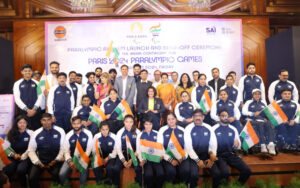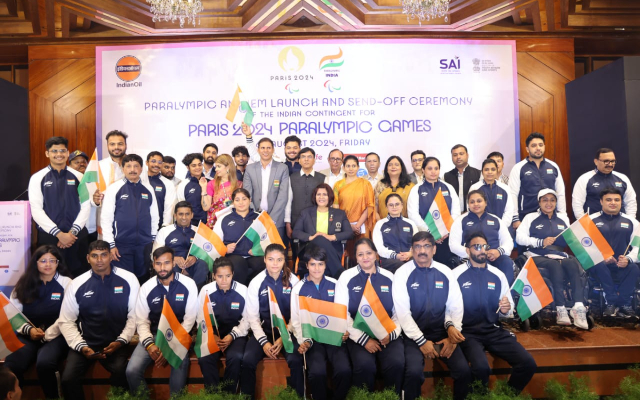
Boria Majumdar in Paris
I was going through the Indian papers yesterday evening, and I am sorry to say I hardly found much Paralympics coverage. With 24 hours to go, one expected a lot more coverage in the Indian press with the 84-strong Indian contingent poised to win over 25 medals at the Games.
At the Olympics, I was pleasantly surprised to see the strong Indian media presence. Yes, there were some who had never covered Olympic sport or had turned Olympic reporters for the first time in four years, but at least they were there. And they made an effort to cover the Games with honesty and sincerity. One wonders why they aren’t here for the Paralympics. Some have even told me on condition of anonymity that if the Paralympic Committee of India (PCI) sponsored them, they would come. If there was no sponsorship, they would give the Games a miss.
In all fairness, the PCI are not in a position to sponsor. They have far less money than the Indian Olympic Association (IOA), and the media need to back them more than ever to try and mainstream Paralympic sport in the country.
For the Latest Sports News: Click Here
In Tokyo, India were exceptional, with 54 athletes winning 19 medals being a stellar effort. The momentum was sustained in the Asian Para Games with India winning 107 medals last October. And yet, the media coverage has been appalling. Some have said to my colleagues that we are fools to spend so much money on covering the Paralympics. According to them, we should just have called the athletes from India, for it is in their interest to speak to us and not the other way round. Such an attitude is honestly disgusting. There is a sense that para sport isn’t important, and the athletes aren’t high profile enough to cover. In fact, to go a step ahead, it is in their interest to pamper the media in the hope of getting some half-decent coverage.
This narrative will soon change. The moment India start to win medals, the very same media will start chasing the athletes. And that’s where we go wrong. We are reactive rather than proactive. We won’t document the para story before we are forced to. The way we treat our para athletes is a reflection of who we are. What we stand for and how society has evolved over time. And that’s where, as part of the Indian sports media, I feel a tad frustrated. I want my colleagues to be here. To document the stories. To celebrate the effort and make noise. For, unless that happens, we aren’t really a multi-sport country. We aren’t really fighting for equal rights, and we aren’t a society that is progressive.

If India win 25 medals, this narrative will get better. In fact, we will be forced to change. The audience will want to know the stories, and the media will have to stand up to consumer demand. That’s why I want this to be a stellar Games. The best ever. As Devendra Jhajharia’s father had said in 2004, “Agar tu jitega to badlao aayga. Agar nahi jitega toh kuch nahi hoga [If you win, there will be change. If you don’t, nothing will happen].”
If the 84-member squad wins 25 medals, there will certainly be change. The media will be forced to wake up. But if they won’t win, nothing will change. Paris is clearly the most important games ever in the history of Indian para sport, and the athletes can write their own destiny in the next two weeks. I can’t wait for the spectacle to begin, and for the tricolour to go up many more times than it did during the Olympics.
Also Read: Thank God We Have Sport




